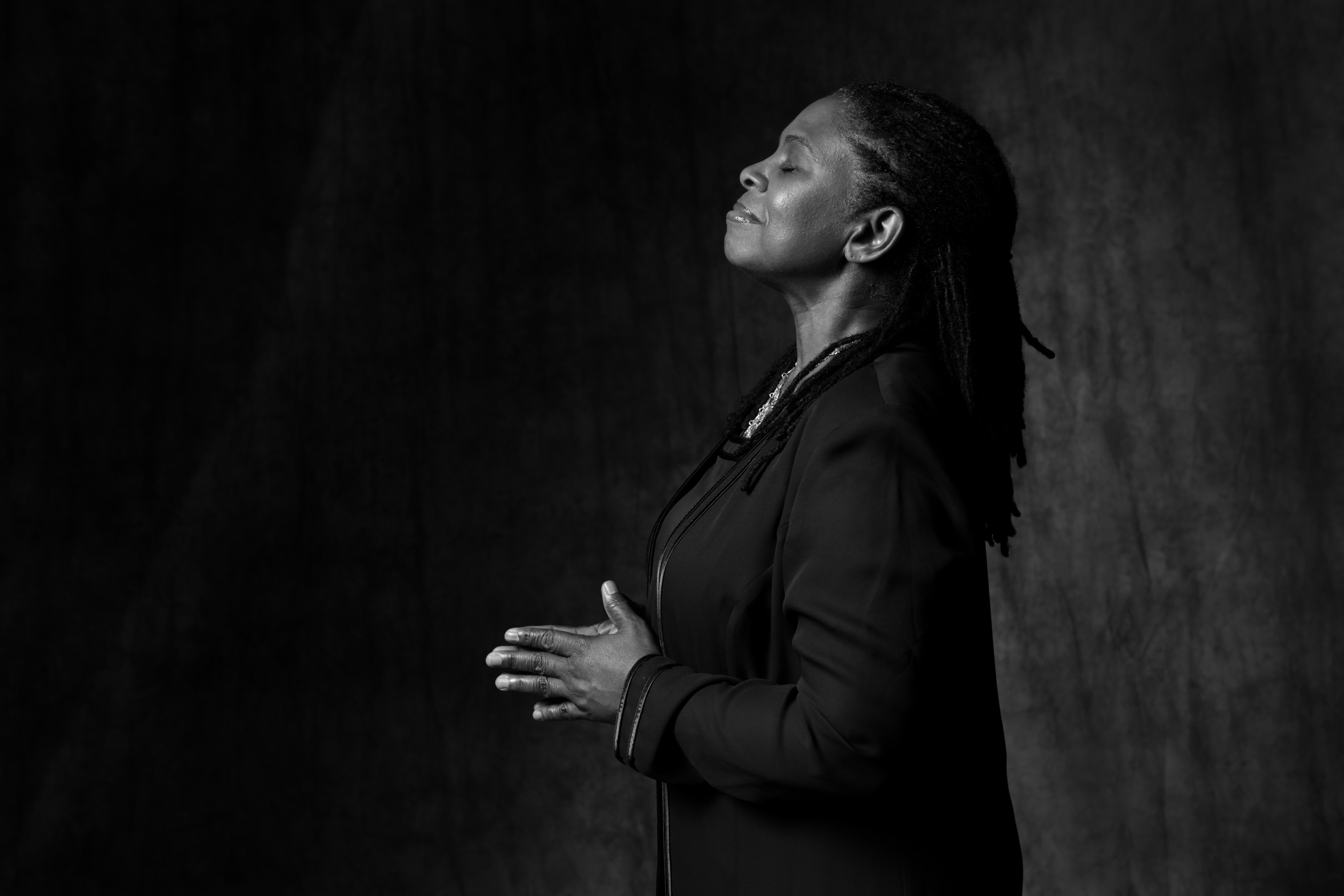The small rural town of Gause, TX had no chance of keeping the vocal powerhouse known as Ruthie Foster to itself. The worship services at her community church and influences like Mavis Staples and Aretha Franklin created the foundation of her vocal capabilities, which developed into her own sound which is unable to be contained within a single genre. That uniqueness echoes a common theme in Ruthie’s life and career - marching to the beat of her own drum.
Joining the Navy was one way for Ruthie to stake out her own path. It was during her time singing for the Navy band Pride that her love for performing became apparent. After leaving the service, Ruthie signed a development deal with Atlantic Records and moved to New York City to pursue a career as a professional musician.
A deal with a major label would seem to be a dream come true for a budding artist, but the label favored Ruthie as a pop star. In another bold move, she walked away from the deal and returned to her roots, moving back to the Lone Star State.
Returning to Texas, Ruthie solidified her place as an up-and-coming singer/songwriter and began a musical partnership with Blue Corn Music, whom she has stood beside for all her releases over the past two decades.
Now comes Ruthie’s latest - Joy Comes Back - again on Blue Corn Music. When she recorded this album, Foster wasn’t merely singing about love and loss; she was splitting a household and custody of her 5-year-old daughter. Music was her therapy.
The comfort she felt within the studio gave her the strength to pour the heartache of her family’s fracture and the cautious hope of a new love into 10 incredible tracks, nine of which are by a diverse array of writers ranging from Mississippi John Hurt and Grace Pettis (daughter of renowned folk singer Pierce Pettis), to Chris Stapleton and Black Sabbath. Producer Daniel Barrett described the album to local hero Warren Hood, who lays fiddle and mandolin on “Richland Woman Blues,” as “some blues, some folk, some soul, some rock, some gospel.” Hood replied, “Sounds like Ruthie Foster music.” It takes a true artist to make an outside song their own and, if you know Ruthie, you know she succeeds. The Recording Academy might want to put its engraver on notice. Every note on Joy Comes Back confirms this truth: It’s Ruthie’s time.
